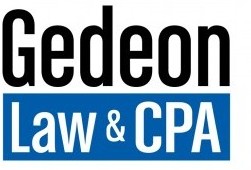S Corporations (Corp) produce several tax benefits as compared to sole proprietorships, partnerships, and C corporations. The big benefit, and the one that people usually talk about, is the payroll tax savings. Using an S Corp for your business can also carry tax detriments. With the right tax planning, however, you can minimize some of these detriments.
Claiming a deduction for the medical expenses of the S Corp owner is one such area where effective planning can help you avoid a tax pitfall.
In particular, let’s assume you are interested in taking advantage of a Health Savings Account (HSA), which is used to pay your current or future medical expenses, as well as the expenses of your spouse and qualified dependents, on a pre-tax basis.
This article explores the tax issues when an S Corp makes HSA contributions on behalf of its more than 2 percent shareholder-employee and its non-shareholder employees.
Payments on Behalf of Employees
When your S Corp makes a payment to an HSA account on behalf of its employees, the employees own their HSA accounts. As a result, the S Corp’s contributions to the employees’ HSA accounts become the employees’ property.
The corporation’s HSA contribution is a tax-free fringe benefit to the employee that is reported on the employee’s Form W-2 in box 12, using the code “W.”
While the employee receives a tax free fringe benefit, your S Corp deducts the contributions to the HSA as an employee benefit program expense.
Payments on Behalf of the More Than 2% Shareholder Employee
If, you are a more than 2 percent shareholder, then contributions by your S Corp to your HSA are also deductible, in the form of compensation, by the corporation.
For employment tax purposes, the S Corp treats the HSA contributions as wages subject to income tax withholding (but exempt from FICA and Medicare taxes).
While you pick up the HSA contributions as income on your W-2, you can deduct the HSA payments made by the S Corp on your Form 1040 and, effectively, you have a wash for tax purposes. But the advantage is you save on payroll taxes by having the S Corp pay your HSA.
And remember, S Corp owners who pay their medical insurance premiums personally are not eligible to claim the self-employed insurance deduction on page 1 of their Form 1040. The deduction is only allowed when the plan is established by the corporation.
At Gedeon Law & CPA, we assist S Corp owners in establishing health insurance plans that result in tax-favored medical expense deductions for both the owner and the corporation.



